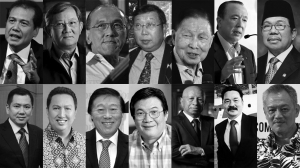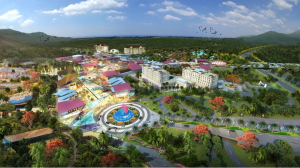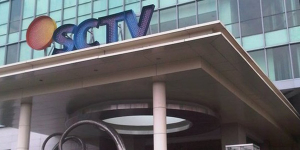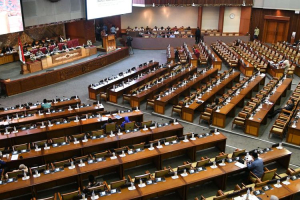Understanding political influence in media industry in Indonesia
There are a few Indonesian politicians own media group while several elected lawmakers come from major media groups. The political stance of media in Indonesia comes into question whenever general elections are approaching. Will they be impartial, biased or lean towards supporting certain political parties or figures? Another interesting question is how the media in Indonesia can create public opinion on important issues?
On the other side, there are journalists or media who abide by the spirit of truthful journalism, get threatened or even silenced. For example, two Indonesian investigative journalists died in November 2019, covered in stab wounds, in a ditch near a palm plantation in Labuhan Batu, North Sumatra, for reportedly mediating a land dispute between residents and a palm oil company. According to the UNESCO site in June 2022, Indonesia solved eight murder cases of journalists in the 1997-2019 period.
Despite their idealism to present truthful journalism products, the public often raised questions, specially approaching to the 2024 general elections. How is the mainstream media in Indonesia linked to political parties? How many elected lawmakers come from major Indonesian media groups? How the media can influence public opinion?
Media Influence in Indonesia
Big media groups usually have news channels in different platforms, including online media. The online media have played a big part due to Indonesia’s massive online presence. Indonesia also has the highest digital valuation in ASEAN, amounting to US$ 70 billion or 40% of ASEAN’s digital economy. However, this accessibility to media is not in line with the development of Indonesian society's media literacy. Citizens are exposed to a more limited range of information, as most important social, economic, political and cultural issues are selectively presented in the media. The media tends to operate on the logic of industry people’s desires and then claiming that this represents the people’s needs. That is how the media shape public opinions and interest on many issues.
A joint research by CIPG (Centre for Innovation Policy and Governance), Hivos Southeast Asia and the University of Manchester, supported by Ford Foundation, in March 2012 revealed that media owners and politicians used the media to convey their interests. Media is considered a commodity, with viewers treated as mere customers rather than as legal citizens with a right to impartial information. The media, as a tool for power, represents bias that cannot be avoided owing to media owners' interference, which also involves the need to support government and corporate policies while developing information, particularly news content, and delivering it to viewers.
This wide reach of mainstream media can influence, or even provoke public opinion. Most Indonesians use social media as a part of their daily activities, then likely become a habit. According to Statista, on average Indonesians spend a total of 8 hours of using the Internet per day and 3 hours of for social media. This is more than enough time to make their opinion get influenced or provoked on several issues.
In addition to that, Indonesia has one of the lowest education backgrounds, according to Statista. Only 53.85% of Indonesians in rural areas completed their senior high school in 2021. In comparison, the completion rate of senior high school for those who lived in urban areas was 74.17%. The lack of education contributes to how easy it is for public opinion to be swayed or fabricated. It is the reason behind politicians’ close relationship with big media groups to reinforce support in a post-truth era.
Below is the connection between media groups and political parties:
MNC Group and Perindo
The MNC Group owns 4 Free to Air (FTA) TV channels that dominate the market with the highest audience share in Indonesia: Rajawali Citra Televisi Indonesia (RCTI), MNCTV, GTV and iNews. The group also owns Sindo Media which owns the Koran Sindo newspaper, Sindo Weekly magazine, news portal okezone.com, and sindonews.com, which is more than enough to influence public opinion.
The MNC Group Chairman is Bambang Hary Iswanto Tanoesoedibjo, popularly known as Hary Tanoe, who is also the founder of the Perindo Party. Hary Tanoe was listed by Forbes as the 29th richest Indonesian in 2016. He is also acquainted with some Indonesian famous politicians such as Surya Paloh when Hary was still in Nasdem Party and Presidential Advisory Board (Wantimpres) chairman Wiranto. His father, Achmad Tanoesoedibjo was close to Indonesia’s 4th president Abdurrahman Wahid. The alignment of interest between media and politics is apparent with the frequent advertisement of the Perindo Party on any MNC group's FTA TV channels.
According to latest political whispers, RCTI, MNCTV, and GTV has joined to support Nasdem Party's endorsed Anies Baswedan's 2024 presidency. Anies is the outgoing Jakarta governor, who is deemed as a strong contender for the 2024 elections.
Media Group and Nasdem
Media group owns popular news–dominated FTA TV channel MetroTV, major newspaper company Media Indonesia and Lampung Post as well as online news sites such as MediaIndonesia.com and MetroTVNews.com.
Surya Paloh owns the Media Group and is currently the Nasdem Party chairman. He served as a member of the People's Consultative Assembly (MPR) for two periods. Paloh was also the advisory board chairman of the Golkar party from 2004 to 2009 before he resigned from the party in 2011. He is acquainted with Hary Tanoe when Hary was still in Nasdem before he left the party. During the 2014 and 2019 presidential campaigns, Nasdem was in the coalition supporting Joko "Jokowi" Widodo's presidential candidacy. This was then reflected in MetroTV's coverage in 2014 and 2019, which was heavily biased or supportive towards Jokowi.
One of Paloh's proteges Fitriana Siregar - who used to work for Media Indonesia as Deputy Managing Editor - now serves as Nasdem's head of media center.
On October 3, 2022, Nasdem officially endorsed Anies as a presidential candidate.
Visi Media, Mahaka Media, Suara Karya and Golkar
Multiple media groups and politicians are linked with the Golkar Party. They are Visi Media and Mahaka Media. Each has its own different networks and the political party itself has its own publishing media, Suara Karya.
Visi Media Group owns popular news–dominated FTA TV channel TVOne and entertainment-focused TV channel ANTV. The group also owns Pos Kota daily, Viva.co.id and VIVANEWS.COM.
Visi Media was founded by Anindya Novyan Bakrie. He was one of the people who joined Coordinating Maritime Affairs and Investment Minister Luhut Binsar Panjaitan entourage during a meeting with US businessman Elon Musk at the Tesla Gigafactory in Texas. The Indonesian Ambassador to the United States, Rosan Roeslani, was also present.
The company is a subsidiary of the Bakrie & Brothers. Anindya’s father, Aburizal Bakrie, was the president commissioner of the Bakrie group from 1992 before the left the company in 2004 to pursue his political career. Aburizal served as Coordinating Minister for Economic Affairs from 2004 to 2005, then served as Coordinating Minister for People's Welfare. He was named as Golkar chairman from 2009 to 2014. It is clear that Visi Media has close ties with the government or has political interests leaning towards Golkar. One clear evidence was when TVOne covered the 2014 and 2019 presidential elections, which were heavily biased towards Gerindra Party chairman Prabowo Subianto.
Mahaka Media owns some of the most popular newspapers in Indonesia Republika and Harian Indonesia. The group also owns two of the most popular radio stations in Jakarta - Gen FM and Jak FM - which is enough to influence the young urban people living in the Greater Jakarta (Jabodetabek).
The media group founder Erick Tohir now serves as the Minister of State Owned Enterprises. He is also known for being the former chairman of Italian Football Club Inter Milan from 2013–2018, a member of the International Olympic Committee (IOC) in 2019 and more. He currently has no political affiliation with any party.
SCMA Group
The SCMA Group owns popular FTA SCTV, Indosiar, O-Channel, news portal Liputan6.com, Bola.com, Nexmedia and Elshinta radio.
Eddy Kusnadi Sariaatmadja is the owner of SCMA Group, he was also a member of the National Industrial Economic Committee (KEIN) from 2016 – 2020.
Jawa Pos Group
The Jawa Pos Group owns the Jawa Pos daily, FTA TV Jawa Pos TV, Radio Fajar FM Makassar, news portal Jawapos.com and JPNN.com.
Dahlan Iskan was the former CEO of Jawa Pos Group. He was also the President Director of PLN from 2009 to 2011 and Minister of State Owned Enterprises from 2011 to 2014.
Kelompok Kompas Gramedia
Kompas Gramedia owns Kompas daily, Kompas TV, Kompas.com, Tribunnews.com, Radio Sonora dan K-Vision.
The group was founded by the late Jacob Oetama. He was a member of the House of Representatives (DPR) for the Press Group. His son, Lilik Oetama, is the current CEO of the group and has no political affiliation.
Yoseph Umarhadi, a journalist from Kompas, was a DPR member from the Indonesian Democratic Party of Struggle (PDIP) faction in 2009.
Trans Corp
Trans Corp owns many popular FTA TV channels and cooperation with international news sites such as Trans TV, Trans 7, Detik.com, CNN Indonesia and CNBC Indonesia.
The company's founder Chairul Tanjung was a former Coordinating Minister for the Economics in 2014, appointed by the 6th President Susilo Bambang Yudhoyono. He currently has no affiliation with any political party. He already stated in 2013 that he had no interest to do politics.
However, based on the latest political whispers, the media company has just pledged its support towards Anies' 2024 presidency. CT Corp's employees are reportedly asked to use the hashtag #kamianies.
Lippo Group
The multinational conglomerate Lippo Group owns news–dominant FTA Berita Satu, newspaper Investor Daily, Jakarta Globe and Suara Pembaruan. Businessman Enggartiasto Lukito reportedly had bought 80% shares of Berita Satu, according to Daily insights.
James Riady, chairman and CEO of Lippo Group, has currently no political association.
Public scrutiny
Media continues to be an integral part inseparable from human life. Therefore, the development of the media industry is always important for the society. Even so, there are steps that need to be taken to ensure that the industry prioritizes service on the interests of the community.
With several big names have connections to or own media groups, it is not a coincidence that a lot of news perspective in the country are influenced by their interests. Approaching to the 2024 elections, we will see more frequently how the media is being used to serve the interests of political parties or figures. And it will depend on the public to scrutinize and criticize the information they receive.
Already have an account? Sign In
-
Start reading
Freemium
-
Monthly Subscription
20% OFF$29.75
$37.19/MonthCancel anytime
This offer is open to all new subscribers!
Subscribe now -
Yearly Subscription
33% OFF$228.13
$340.5/YearCancel anytime
This offer is open to all new subscribers!
Subscribe now







